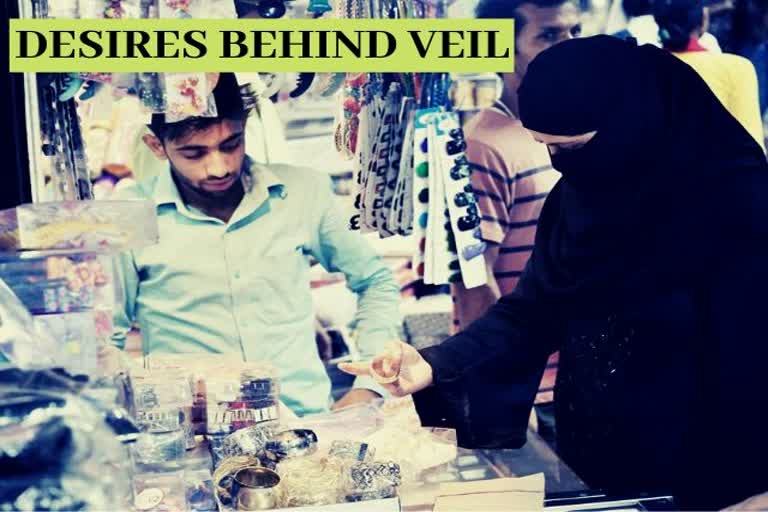Hyderabad: In war, truth is the first casualty and women the second. This is what women of war-torn Syria, Iraq, Yemen and Afghanistan symbolise. Their plight is the untold story buried under the debris of major political narratives. Yet some women make their way to safety and liberty as they realise their vulnerability to religio-political discourses. As it is also evident in the once Taliban held areas of Afghanistan.
Barring a few provinces, the entire Afghanistan, particularly provinces bordering with Pakistan, would witness women adopting primitive lifestyle against their wishes. Same was the case with women from Middle Eastern countries. Women in these regions would like to adopt a culture entailing equal opportunities of freedom and rights men enjoyed but the popular regimes never approved of it.
Most of the women, out of ignorance, believed what they practice was a part of faith, even the rights they perceived for them were, as per the Islamic jurisprudence, unequal, arguably for their different physiology. The acceptance of the farcical belief had become faith for them and women lived under this for decades and centuries.
Men were allowed to choose their partner and women had to seek approval from patriarchal family system. Men would express their feelings, women had to keep them within. The definition of sin too had many dimensions and definitions. If it were committed by men, it would come with a different cost, while for women it would come as an irreparable loss.
The worst hit, in this paradigm, during the last two decades was war-torn Afghanistan. It was during the Taliban rule that women would hardly find any place to work to support their families. They wouldn’t even go to schools with co-education. Everything that would provide them a space to vent out their expression was forbidden.
Besides face, voice of a woman was to be kept away from strangers (gair-muharim). Same was the case with women in the Arab world. Women, even in case of emergencies, wouldn’t be allowed to drive their families out. Revolution out of deprivation was inevitable and change had to happen.
The idea of individualism through modern literature and the modern interpretation of cultural Islam helped untie the shackles women remained for decades in these areas. Their plight was partly because of patriarchal coercive methods and to some extent for their nonresistance approach.
The parochial and restricted flow of information was to a large extent a deterrent to change. The war, paradoxically, led to migration of populations, which in turn led to a shift from orthodox practices in newer lifestyles in other areas.
However, some people chose not to migrate but to bring change on their own soil, daring all the forces that oppose the change. Maena Habib is one among them who, during the Taliban rule, chose not to leave Kabul but to adopt lifestyle she wished to live with.
Maena, a Tajik woman, who comes from one of the remotest, grubby and dusty villages of Kabul, decided to break free from shackles of oppression and subjugation. She comes from a poor surrounding, but her dress and looks belie that. Working with men, that too in public domain was, during the time of Taliban rule, an open invitation to death.
After she finished her education she joined a news magazine and started to present a show on television. A reason good enough for her to spruce her looks. In a country, where most of the women are cloaked in Burqa for better part of their lives, Habibi made a bold statement by applying makeup and wore jeans and a top.
She dyed her hair too--quite a daring act in a country where the Taliban loomed large on major part of Afghanistan. She would leave home at 7 am for office in main Kabul city. Habibi had seen political fortunes of Afghanistan changing hands between the Mujahideen to Taliban to the present US-backed Ashraf Gani regime.
Though she is comfortable with the present government, she is least impressed with any of the leaders. She never had any support from her family except her mother, that too stealthily. Her father never liked her work nor would he approve of her mixing with male colleagues, which is why she chose to stay away from home. She lives in an apartment in Kabul city without any family support.
While she was a student she too wore burka (veil), under duress, to avoid the wrath of the society, unwilling to accept women without burka. Like Habibi, many Pukhtoon girls, too, seem to enjoy the new-found freedom in some parts of Kabul. A third-year psychology student of Kabul University has lived different regimes but the change they witness now for women is something they would like to last and also expect to spread across the country to better lives of women living in the countryside.
The fact of the matter is that every human heart desires something passionately. It is therefore obligatory for societies to realise the reality of feelings that recognise neither gender boundaries, nor the systems that disallow fulfillment of ones desires and approves of the other.
If the control has to happen it has to happen for both the veiled and the uncovered. There should be no discrimination on the basis of sex, nor should the life and the lifestyle be decided on the basis of gender.



